The unheard voice: the athlete's view of the most important legal issues in sport
Thursday, 22 June 2017In a recent podcast[1] Andréanne Morin, Olympic rowing medalist, and now lawyer, discussed athlete transitioning to life after sport. One of the interesting aspects of her interview was the importance she placed on the presence of “the athlete voice” in boardrooms and panels. This made me wonder what athletes felt were the key legal issues in sport.
Therefore in order to give athletes a greater voice I spoke to eleven current and former athletes to get their views on the key sports law issues to watch from their perspective over the next 6 months.
Featured athletes:
- Ben Sandford, Winter Olympian, WADA Athlete Committee Members, and Lawyer
- Jeff Adams, Paralympian and six time world champion in wheelchair sport, and Law Student, Osgoode Hall, York University
- Richard Yates, Former professional athlete, current English Champion over 400 hurdles, Sports Lawyer
- Abigail Irozuru, Motivational Speaker & Performance Coach at AMPLIFY, British athlete, and a law graduate
- Ramón Soria Alonso, Professional football player and Sports Lawyer
- Emma Mason, Council Member, World Badminton Federation, Board Member, Badminton Europe and Associate at Squire Patton Boggs (UK) LLP
- Francis Awaritefe, Former Australian International Football Player and law graduate
- Obadele Thompson, Lawyer, and former Olympian and Olympic medalist, sprint athlete
- Claire Wheatman, Future Trainee at Shepherd and Wedderburn LLP, and British Junior Ski Cross Champion 2009 and 2010
- Leon Lloyd, Director at Switch the Play, and former professional rugby player
- Gareth Farrelly, Trainee solicitor at Peters & Peters, and former Premiership footballer
I hope you enjoy the article. If you think there’s anything you would have liked to have seen be mentioned please feel free to tweet us @LawInSport or email us with your suggestions at
Governance
Ben Sandford
Winter Olympian, WADA Athlete Committee Members, and Lawyer
The initiation of the Charter of Athlete Rights (COAR)
The key sports law development for athletes to watch for this year is the Charter of Athlete Rights (COAR). This could have a hugely positive impact on athletes and sport by ensuring that athletes have universal basic rights, that those rights are enforceable, and that athletes are at the heart of the governance and decision making of sports organisations.
This project has been initiated by the WADA Athlete Committee but it needs the input of athletes and stakeholders from around the world. I highly recommend all athletes to get involved and have a say on what rights they want to see in the Charter.
Obadele Thompson 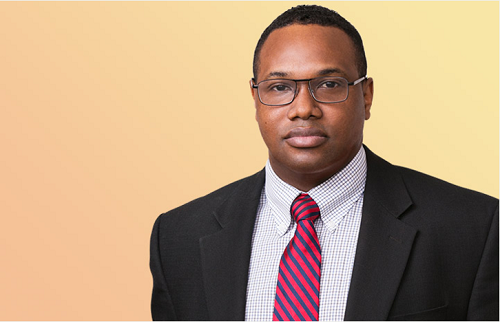
Lawyer, and former Olympian and Olympic medalist, sprint athlete
Greater Accountability in Sports Governing Bodies
Sadly, issues involving doping and ethical issues in sports governing bodies will likely continue to dominate the headlines. Historically, the focus has been on the former, but recent scandals at FIFA and the IAAF have shown that much more must be done to ensure that those in charge do not profit from unethical conduct while undermining the integrity and reputation of sport.
On 3 April 2017, the IAAF’s Integrity Code of Conduct[2] came into effect following recent public debacles involving, among other things, odorous corruption among some of the organization’s highest officials. The new Code is designed to restore, encourage, and maintain integrity in the sport at all levels—from governance to competition—by providing clearer mandates regarding the conduct and reporting obligations of key stakeholders. Under the banner “One Code – One Tribunal”[3], the revised IAAF Constitution establishes a new independent Disciplinary Tribunal to hear and decide all breaches and impose sanctions under the Code.
It remains to be seen how the new Code and Disciplinary Tribunal will affect the sport. However, as athletes, fans, and sponsors tire of scandals involving those charged with governing sport, expect—perhaps hope is more reasonable—other sports governing bodies to follow by instituting, amending, or placing more emphasis on integrity codes that provide for clear and greater transparency and accountability for their leaders.
Anti-Doping
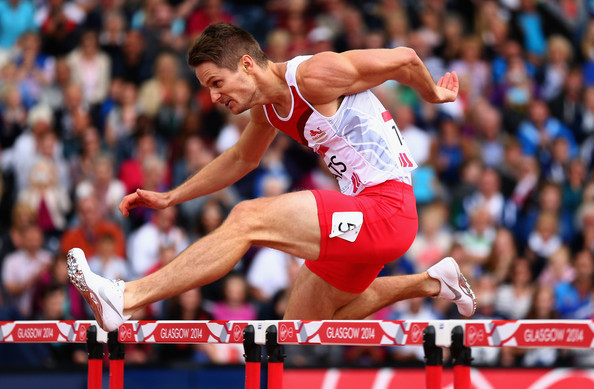 Richard Yates
Richard Yates
Former professional athlete, current English Champion over 400 hurdles, Sports Lawyer
Doping in sport and anti-doping regulation reforms
2017 is likely to witness a further plethora of negative publicity in the area of doping in sport. I fear that the recent media and legal investigations are only the tip of the iceberg in this respect. Both individual and state-sponsored doping is increasingly prevalent in the sport of athletics amongst others and there are likely to be calls for greater punishments for those convicted of doping.
I also believe there will be demand for the preventative bodies to enhance their existing strategies and tighten up their regulations and testing regimes to prevent, not just outright cheating, but also the bending of the rules and highly publicised recent manipulations of the current system in relation to TUE’s (Therapeutic Use Exemptions)

Abigail Irozuru
Motivational Speaker & Performance Coach at AMPLIFY, British athlete, and a law graduate
Applying the ‘false-start’ rule in athletics to anti-doping violations
I am keen to see how effectively the international and national federations combat the issue of doping in sport. Doping issues are always going to be a contentious issue, particularly when it means sportsmen and women were duped out of their moment on the podium, including the potential future earnings that come from kit and commercial sponsorship deals. Whether there has been a true rise in the number of dopers caught or simply higher publicity relating to each scandal, the issue seems to have become increasingly prevalent over the past year. Yet sanctions for athletes who take performance-enhancing drugs remain ludicrously lax. It is beyond comprehension that an athlete who has failed a test even once should be allowed to continue to compete, yet athletes are returning to the track or field after a second or even a third failed test. It should clearly be unacceptable. I praise the IAAF for the blanket suspension on the Russian Sports Federation due to their systematic state-sponsored doping regime. However, will international and national federations pull their finger out and start to make the tough calls that every athlete is hoping, praying and rallying for in relation to doping violations of individual athletes?
The track athletics "one-and-done" false start rule states that if an athlete on the start-line makes one false start at any time, that athlete will be immediately eliminated from the competition; there is no second chance.[4] Will this year see the international sports federation apply a similarly stringent ‘one-and-out’ rule to those who contravene anti-doping regulations?
Jeff Adams
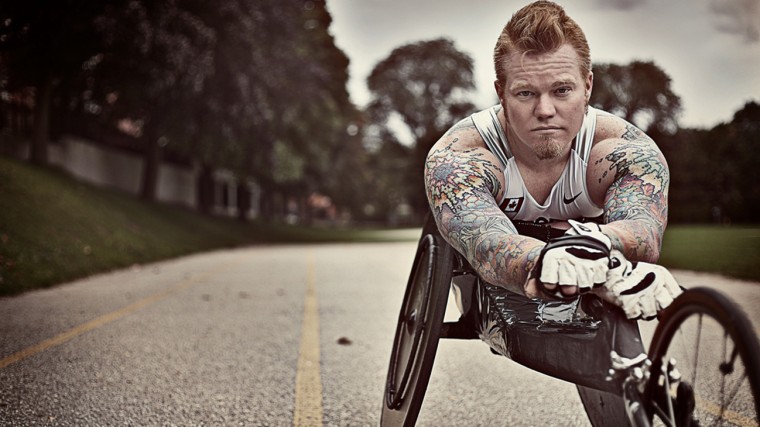
Paralympian and six time world champion in wheelchair sport, and Law Student, Osgoode Hall, York University
The application of human rights legislation to anti-doping regulations and athletes
I believe there will be a legal intersection between human rights and athlete rights, specifically as it pertains to anti-doping. The global players are maneuvering in a not-so-veiled attempt to secure more funding for what is increasingly being acknowledged as an ineffective and corrupt regime, which may loosen the traditional reluctance of the courts to seize themselves of cases dealing with sporting and anti-doping matters.
There are three cases currently before the courts in Canada (two before the Human Rights Tribunal of Ontario and the third before the Superior Court of Justice, Ontario) that are all claims with regard to human rights legislation that would remove the cases from the exclusive jurisdiction of the CAS, and apply domestic law to the interpretation of the anti-doping regulations.
All three have been accepted by the courts, one that is in the midst of preliminary motions, one that is headed toward the mandatory mediation phase, and the last that has a scheduling hearing in late March where it will be set down for trial. All three cases have the potential to break free of the restrictive nature of the mandatory arbitration clause that normally shackle sport law cases, and see human rights applied in a never-before seen way to athletes.
Anti-Corruption
Ramón Soria Alonso
Professional football player and Sport Lawyer
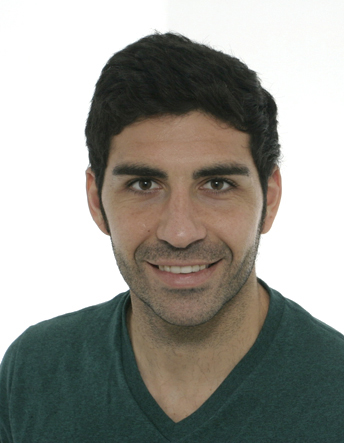
The need to continue the fight against corruption in sport
The key sports law development for athletes to watch this year will be match-fixing in Sports. Most sports federations have already amended their regulations to included articles and provisions on match-fixing. For example, FIFA has highlighted match-fixing in Article 69 of its Disciplinary Code, article 25 of its Code of Ethics, and Article 3.11 of its Code of Conduct. Also, the second EU Work Plan for Sport[5] working on match fixing and supported by the European Commission will be finalized this year (2014-2017). In addition to these efforts, national governments are issuing more severe sanctions for match-fixing in their legislation and in some countries, as is the case of Spain; the Criminal Code has been amended to include article 286.4 bis, which states that match-fixing can be punishable up to 4 years in prison. Despite all these measures, there have been many cases of match fixing in recent years. Therefore, it is essential to continue fighting, investigating, and developing rules to preserve the integrity of the game. Greater cooperation, unity and commitment from athletes, teams, sports federation and governments are necessary to keep sport free from this this sort of corruption.
As for a more specific issue in Football, this year will be interesting to know the consequences of Lassana Diarra´s court case win. A Belgian court ruled that FIFA transfer rules are contrary to EU employment law concerning the freedom of movement. So, this decision along with FIFPro’s complaint against FIFA transfer rules could change the transfer system.
Finally, as an active football player of a NASL team, I am looking forward to know the final decision of US Soccer federation regarding the issue of Division II. This year NASL and USL leagues were sanctioned Division II status provisionally until the end of the year. Now, both leagues have all year to meet the full requirements in order to be granted Division II status definitively. This decision will be very important for the future of both leagues and the growth of soccer in North America.
Athlete Welfare: Duty of Care

Claire Wheatman
Former England development team member and twice British junior champion in ski cross and current paralegal at Shepherd and Wedderburn LLP
Preventing injuries and how injuries are handled
With my background being in ski cross racing, I am not a stranger to injuries and the sense of being "on the edge" and its dangerousness is probably one of the main attractions to the sport. Athletes accept that there will always be an element of risk with most sports; however I believe that the likes of governing bodies, clubs and coaches owe a responsibility to the athletes to maintain their duty of care?.
Head trauma is possibly one of the most talked about sporting injuries in many sports. Although it would be ideal to see clubs and coaches taking more of a leading role in this by making the decision that their athlete's safety after a head collision is more important than keeping that key athlete on to potentially win, ultimately I think the decision needs to come from the governing bodies by implementing stricter rules, clearer policies and more comprehensive tests. This would mean that the coach and athlete are not put in the position to make such a conflicting decision.
Although in some sports, such as rugby, many organisations and governing bodies have taken substantial steps in trying to tackle this and tighten their policies and assessments over recent years, they still are not doing enough. Athletes are still able to "beat" the head injury assessments, meaning that they are allowed to continue to compete despite it being obvious that they are not fit to continue. Prime examples of this include rugby's George North's obvious concussion against Leicester Tigers last year[6], NFL's Calvin Johnson who has recently admitted that he suffered concussions that he hid from team doctors[7], as well as the NFL agreeing to pay out[8] to former athletes who are at risk of developing problems related to repeated head traumas. With such instances being discussed more and new technology advancing medical knowledge as well as the understanding of such injuries and the real damage that results, this is definitely going to be a hot topic to watch in the coming months, whilst new policies and protocols are discussed before the season begins again for the majority of these sports.
Emma Mason
Council Member, World Badminton Federation, Board Member, Badminton Europe and Associate at Squire Patton Boggs (UK) LLP
Transitioning to life after sport: The duty of care owed to athletes to ensure a successful transition
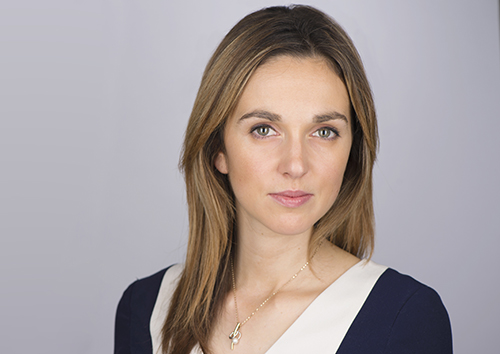
In terms of key sports law issues for athletes, I will go with (perhaps unsurprisingly): Duty of care and, in particular, the duty of care owed to an athlete on transition from sport to life after sport.
In the past year, there has been a growing awareness that the transition (a term used to describe the period during which an athlete retires from sport and moves to his/her life after sport) can be, at best, very challenging and, at worst, financially and mentally crippling. The transition is a global problem: it is not unique to one nation, one sport or one group of athletes. It should also go without saying that the former athletes and organisations who have been willing to share their experience of the transition must take the majority of the credit for bringing this issue to the table.
Having identified a clear problem raises the question as to: (i) who is responsible for assisting an athlete with the transition, (ii) once that organisation or body is identified (if any), what the scope of that assistance is/their duties are, and (iii) who is going to finance this support. In my opinion, the transition is an issue that has not yet been adequately dealt with (in the UK or abroad). I also consider that the impact of the transition is now greater than ever; a negative consequence of a positive change brought about by the increasing commercialisation of sport and (in the UK) the availability of Lottery Funding that allows our athletes to treat their sport as a full time job. However, while it does not sit comfortably with me that we, the British public, delight in and encourage our athletes efforts e.g. at the Olympic/Paralympic Games, in the Premier League, the Ryder Cup or the Six Nations but then allow them to struggle to find their place in society once they are, for want of another phrase, "past their sell by date", it is not yet clear what legal duties (if any) are owed to athletes on transition.
On 21 April 2017, Baroness Tanni-Grey Thompson published her report[9] on the duty of care owed by sports governing bodies to their athletes. Amidst funding cuts and the increasing awareness of the problems the transition can create, athletes (and their respective sports organisations) should be listening carefully to see what impact that report will have on the support they can expect to receive and/or be required to deliver. In my opinion, a universal problem requires a harmonised solution. Further, that solution must be adequately funded and financially sustainable: it must not only be available to athletes transitioning from the most lucrative sports.
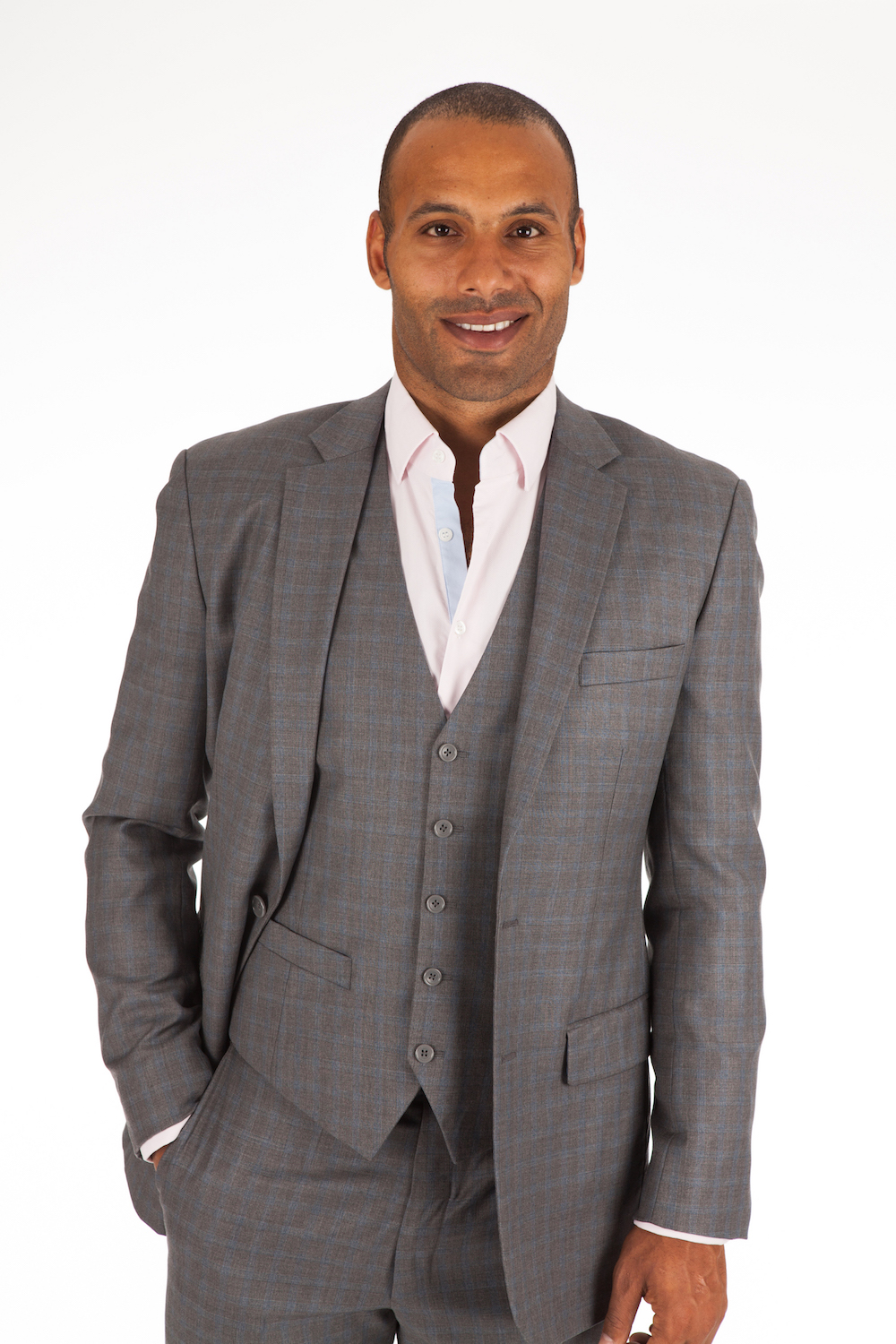
Leon Lloyd
Director at Switch the Play, and former professional rugby player
Moral v contractual obligations and the Duty of Care
With the increase in awareness recently and reading about players threatening to sue their employers around playing with concussions and also no long term support from career ending injuries, I was told at the recent Sport Resolutions conference that the phrase Duty of Care (DoC) has legal connotations and people can be sued where a legal duty has been suggested and accepted, and where evidence suggests negligence. Therefore, my question would be where does this sit with organisations and specifically where the increase in player wages impacts on the relationship between the player and the club. Arguably this relationship is now becoming purely transactional, resulting in emotional and moral obligations now being put to one side. I have noticed that one of your other contributors has mentioned DoC but what differentiates that from employers, agents, NGBs etc. having a moral obligation but not being legally required to offer support or provide solutions as part of the employment contract?
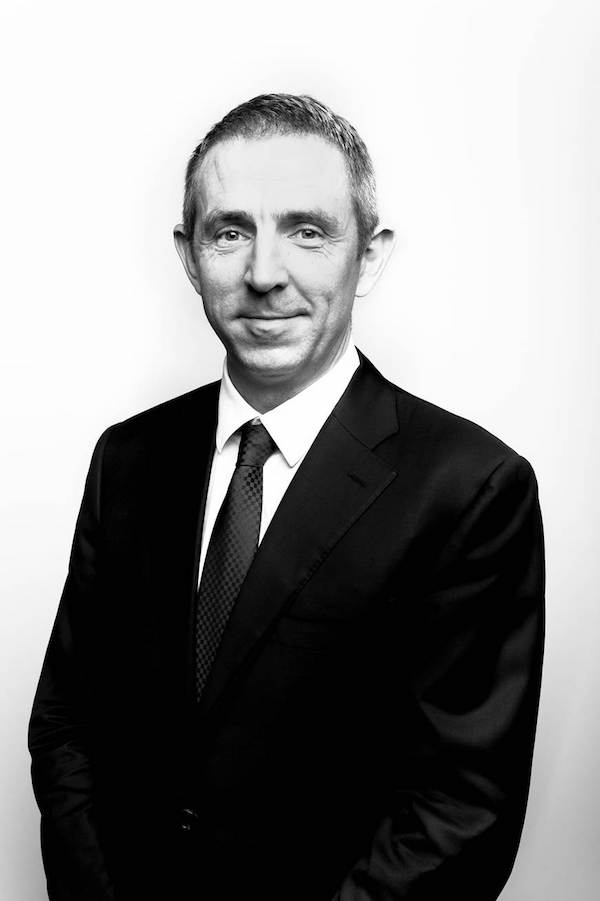
Gareth Farelly
Trainee solicitor at Peters & Peters, and former Premiership footballer
The need for access to “reputable professional advice”
From a tax and criminal law perspective, 2017 is proving to be a fascinating year, in large part thanks to recent efforts undertaken by Spanish prosecutors. In 2016, Barcelona’s Javier Mascherano agreed a one-year suspended sentence with Spanish authorities for tax fraud for which he was fined nearly €800,000 (£611,000), and prevented from receiving any tax benefits for a year. In comments now commonplace in the sector, the Argentina international issued a statement via his Twitter account and Barcelona website, in which he stated: “I’m a sporting professional, I don’t have a great understanding of tax and legal matters. Therefore, to deal with what are for me technical and complicated matters, I have to rely on other people…”.
More recently, in May this year, the Spanish Supreme Court rejected an appeal made by Lionel Messi, and his father Jorge, against convictions for three counts of tax fraud. This related to the alleged use of tax havens in Belize and Uruguay, between 2007 and 2009, and which has resulted in terms of imprisonment of 21 months’ and 15 months’, respectively. Under Spanish law, sentences under two years can be served under probation. Separately, former Manchester United winger Angel di Maria has agreed to pay 2m euros (£1.76m) to settle his tax case in Spain. He will plead guilty to two charges of fraud relating to image rights during his time at Real Madrid.
In further developments, Spanish prosecutors have accused the Real Madrid footballer, Cristiano Ronaldo, of defrauding the authorities out of millions of euros in tax. The prosecutor's office in Madrid says it has filed a lawsuit against the Portuguese player. He is accused of evading tax of 14.7m euros (£13m; $16m) from 2011 to 2014, in relation to his image rights. Manchester United manager José Mourinho has also been accused of two counts of tax fraud, totalling €1.6m in 2011 and €1.7m in 2012. The Madrid prosecutor said the case has been presented to a local court.
Looking ahead, at the time of writing, Neymar is set to stand trial in Spain for alleged fraud and corruption following his transfer from Santos to Barcelona in 2013, for which he faces a possible two-year jail sentence and €10m fine.
This is a sad fate for some of the greatest contemporary players in the sport, and serves as an indictment of both the individual players highlighted, but also those responsible for providing advice to the sportspeople concerned.
In the past, scant attention has been paid to how best to regulate the advice given to sportspeople in relation to often complex – albeit lucrative – professional decisions. Baroness Grey-Thompson’s Duty of Care in Sport Review, published in April 2017, did much to raise publicity over the need for a greater duty of care to be shown towards sportspeople. However, the Review omitted entirely the provision for basic advice relating to personal affairs (financial or otherwise) of both current and retired sportspeople.
There needs to be more work done on making athletes directly aware, be it through the governing bodies or player federations, that reputable professional advice exists: be it from lawyers, accountants, or former sportspeople (many of whom have travelled the same road, made the same mistakes, and understand the psychology of participants in their sector).
The rewards available to sportspeople are enormous, but the reputational consequences of improper decisions stark. Many sportspeople, who are single-minded in their pursuit of professional success, often defer professional decision-making to a core team of “advisors”, many of whom are either ill-equipped to understand the magnitude of poor financial planning or are motivated by nefarious aims. There is a real danger that without reform, 2017 will mark the point at which the scar of unscrupulous businesspeople on sport became indelible.
Discrimination in sport
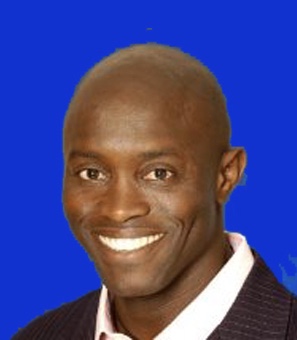 Francis Awaritefe
Francis Awaritefe
Former Australian International Football Player and law graduate
Equal pay for female athletes
One of key sports law issues for 2017 and beyond will centre around gender equality and pay in professional women’s sport. The issue of gender equality just doesn’t cover pay equality. Women are now becoming organised through becoming members of existing players associations, which previously only covered male athletes. They are now able to bargain about fundamental working conditions such as the provision of high performance environment including training, medical and sport science, maternity, and of course pay equality. There is still some way to go on pay equality; however, Australia seems to be setting the trend in sports such as Hockey, with Hockey Australia’s equal pay policy for male and female athletes.[10] Additionally in Football, Cricket, Netball, and Australian Rules Football, women’s employment conditions are now regulated by collective bargaining agreement (CBA) with their respective sports governing bodies. The next battleground is the ongoing industrial dispute between the United States Women's Football Team (USWNT) and US Soccer[11], the subject of litigation in US Courts, with another ongoing dispute involving US Hockey and women players fight for equal pay and conditions.
References|closed
[1] S Cottrell, ‘Career transition from athlete to lawyer: Interview with Andréanne Morin’, LawInSport, 2 January 2017, last accessed 28 April 2017, https://www.lawinsport.com/features/podcast/item/career-transition-from-athlete-to-lawyer-interview-with-andreanne-morin
[2] IAAF’s Integrity Code of Conduct, https://www.iaaf.org/download/download?filename=832bec93-b34b-4724-914f-0a3f861cea1e.pdf&urlslug=IAAF%20Integrity%20Code%20of%20Conduct
[3] ‘ IAAF Anti-Doping Fact Sheet’, https://www.iaaf.org/download/download?filename=b0cf20e1-ad4f-4c50-b75d-b17b2b42f570.pdf&urlSlug=iaaf-anti-doping-factsheet
[4] M Bonesteel, ‘Track and field’s one-false-start rule is simply the cruelest’, Washington Post, 16 August 2016, last accessed on 28 April 2017, https://www.washingtonpost.com/news/early-lead/wp/2016/08/16/track-and-fields-one-false-start-rule-is-simply-the-cruelest/
[5] ‘ EU Work Plan for Sport 2014 - 2017’, European Commission, last accessed 28 April 2017, https://ec.europa.eu/sport/policy/cooperation/expert-groups-2014-2017_en
[6] P Bolton, ‘George North allowed to continue playing for Northampton against Leicester after suffering yet another head injury ‘, 3 December 2016, last accessed 7 June 2017, https://www.telegraph.co.uk/rugby-union/2016/12/03/leicester-19-northampton-11-manu-tuilagi-continues-comeback/
[7] D Birkett, ‘Calvin Johnson: Playing through concussions is part of NFL life’, 22 May 2017, last accessed on 7 June 2017, https://www.freep.com/story/sports/nfl/lions/2017/05/21/calvin-johnson-nfl-concussions/335165001/
[8] ‘NFL, ex-players agree to $765M settlement in concussions suit’, NFL.com, 29 August 2013, last accessed on 7 June 2017, https://www.nfl.com/news/story/0ap1000000235494/article/nfl-explayers-agree-to-765m-settlement-in-concussions-suit
[9] T Thompson, ‘Duty of Care in Sport Review’, Department for Culture, Media & Sport, 21 April 2017, last accessed 28 April 2017, https://www.gov.uk/government/publications/duty-of-care-in-sport-review
[10] N Evershed, ‘How much are Australia's male and female sports teams paid?’, The Guardian, 15 September 2015, last accessed on 28 April 2017, https://www.theguardian.com/news/datablog/2015/sep/15/how-much-are-australias-male-and-female-sports-teams-paid
[11] S Fowler, ‘U.S. Women’s Soccer – Their Battle for “Equal Pay”- What Would You Decide if You Were the Judge?’, Fansided, 27 December 2016, last accessed on 28 April 2017, https://mlsmultiplex.com/2016/12/27/battle-for-equal-pay-you-decide/
- Anti-Corruption Anti-Doping Arbitration Athlete Welfare Athletics Australia Badminton Canada Charter of Athlete Rights (COAR) Concussion Court of Arbitration for Sport (CAS) Dispute Resolution Duty of Care Employment Football Governance Hockey Hockey Australia IAAF Constitution Integrity International Association of Athletics Federations (IAAF) Olympic Paralympic Regulation Rugby Spain Tennis Therapeutic Use Exemption (TUE) United Kingdom (UK) United States of America (USA) USWNT Winter Sports World Anti-Doping Agency (WADA)





